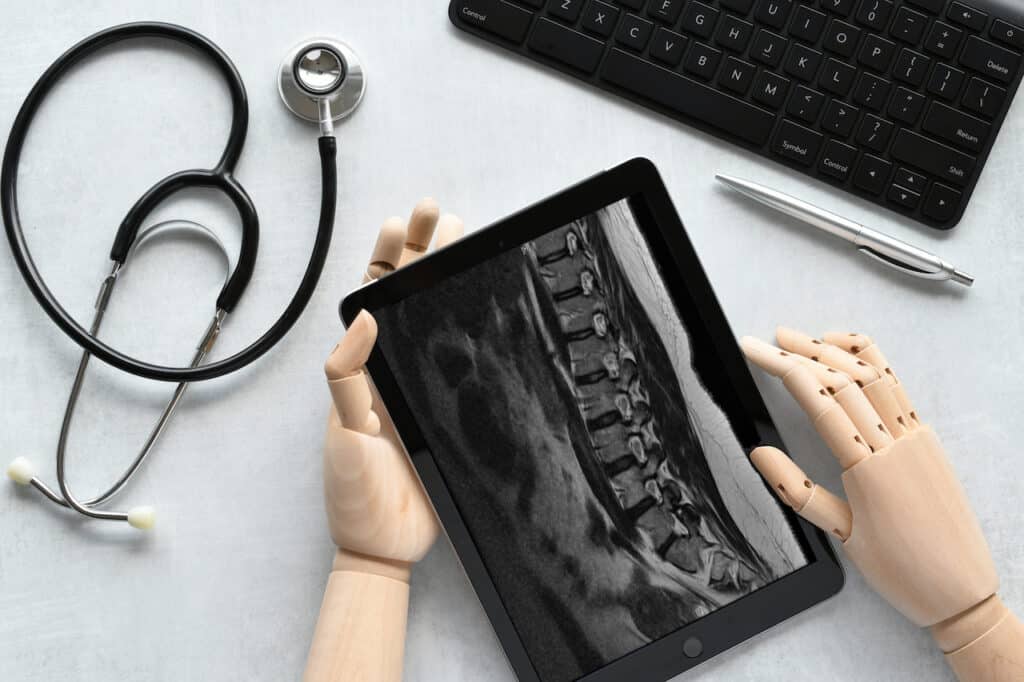The 2020s have already been marked by exponential technological advancements. Artificial Intelligence (AI) is one example, emerging as a transformative force in various domains. The field of medicine, in particular, has experienced a profound impact, revolutionizing the way healthcare professionals diagnose diseases, identify patterns, and predict patient responses to therapies.
For those who are interested or concerned about AI’s growing role in the healthcare industry, this guide has been created to help you delve into the remarkable role that AI plays in medical diagnosis, highlighting its extensive capacity.
AI’s Impact on the Medical Field
AI has undeniably left a mark on the medical landscape—here are just a few examples:
- Enhanced Efficiency: AI streamlines complex tasks, allowing healthcare providers to allocate more time to patient care.
- Improved Accuracy: Machine learning algorithms can analyze vast datasets with unparalleled accuracy, reducing diagnostic errors.
- Personalized Medicine: AI tailors treatments to individual patients, optimizing outcomes.
- Predictive Insights: This technology assists in forecasting disease outbreaks and patient responses to treatments.
Making Precise Diagnoses
One of the most notable contributions of AI in medical diagnosis is its ability to provide precise and swift identification of diseases. In turn, there are numerous benefits that eliminate once-common issues:
- Data Analysis: AI analyzes patient data, such as medical records, images, and test results to detect subtle signs of diseases.
- Early Detection: Machine learning models can identify diseases at earlier stages, increasing the chances of successful treatment before illness spreads too far.
- Reduced Errors: AI minimizes the risk of human error in diagnosing complex conditions.
Identifying Patterns
AI excels at recognizing intricate patterns within extensive datasets, a valuable asset in healthcare—data mining, disease identification, and treatment planning are just three tools in which they implement this.
With data mining, AI scans large datasets to uncover hidden correlations and trends while disease identification uncovers patterns that may escape the human eye, aiding in disease detection. Once these are complete, treatment planning can commence where AI identifies patterns in patient responses, helping healthcare providers tailor treatment plans for better outcomes.
Predicting Patient Responses
AI in medical diagnosis can forecast how patients may react to various therapies, enabling personalized treatment strategies that offer the following benefits:
- Treatment Optimization: Predictive modeling suggests the most effective treatments for individual patients.
- Minimized Side Effects: AI can help reduce adverse reactions by tailoring treatments to a patient’s unique profile.
- Outcome Prognosis: Physicians use AI to estimate patient outcomes and adjust treatment plans accordingly.
Staying Protected in the Medical Field
In the medical field, ensuring the security and privacy of health data is essential. Key considerations include:
- Patient Privacy: Encrypt patient data, enforce strict access controls, maintain audit trails, and obtain patient consent.
- Regulatory Compliance: Adhere to HIPAA regulations, establish data retention policies, and conduct regular compliance audits.
- Secure AI System: Prioritize security in AI tool development, regularly update and patch systems, and vet AI vendors for security.
- Employee Training: Train staff in cybersecurity and phishing awareness.
- Incident Response Plan: Establish a response team, create a detailed incident response plan, and conduct drills.
Elevate Your Healthcare Future with Tech Rockstars: AI and Data Security Combined
For cutting-edge AI solutions and robust cybersecurity measures tailored to the healthcare industry, partner with Tech Rockstars. Our expertise in AI technology and data security can empower your healthcare organization to harness the full potential of AI in medical diagnosis while ensuring the utmost protection for your patient data.
By embracing the possibilities of AI together while prioritizing data protection, the medical field can unlock a brighter, healthier future for all.


